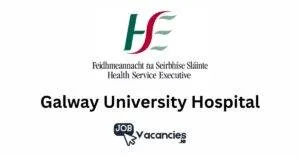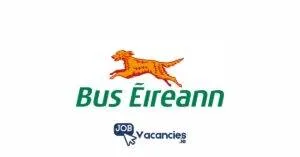Table of Contents
- Table of Contents
- Introduction
- Before Day One: Preparation
- Research and Review
- Logistics and Documentation
- Practical Preparations
- Mental Preparation
- First Week: Making a Strong Impression
- Day One Essentials
- Building Initial Connections
- Navigating Company Systems
- Setting Initial Expectations
- Understanding Irish Workplace Culture
- Communication Style
- Relationship Dynamics
- Work Approach
- Cultural Considerations
- Building Professional Relationships
- Mapping Your Network
- One-on-One Connections
- Team Integration
- Social Engagement
- Communication Strategies
- Understanding Communication Channels
- Active Listening
- Clear Expression
- Navigating Irish Communication Styles
- Setting and Managing Expectations
- Clarifying Role Expectations
- Creating a 30-60-90 Day Plan
- Managing Stakeholder Expectations
- Self-Management
- Learning Systems and Processes
- Technical Systems
- Organizational Processes
- Documentation and Resources
- Learning Strategies
- First Month: Establishing Your Role
- Deepening Organizational Understanding
- Contributing Value
- Expanding Your Network
- First Month Review
- Second Month: Gaining Momentum
- Expanding Responsibilities
- Demonstrating Expertise
- Deepening Relationships
- Second Month Review
- Third Month: Solidifying Your Position
- Full Role Implementation
- Strategic Contributions
- Established Presence
- 90-Day Review and Future Planning
- Seeking and Receiving Feedback
- Establishing Feedback Channels
- Asking Effectively
- Receiving Constructively
- Implementing and Following Up
- Tips for International Professionals
- Cultural Adaptation
- Language Considerations
- Practical Matters
- Building Support Networks
- Remote and Hybrid Onboarding
- Setting Up for Success
- Virtual Relationship Building
- Communication Strategies
- Hybrid Work Considerations
- Conclusion
- Key Takeaways
- Final Thought
- Related Posts
First 90 Days in a New Job in Ireland: Onboarding Success
Reading time: 12 minutes
Starting a new job is both exciting and challenging, especially in Ireland’s dynamic work environment. The first 90 days are critical for establishing yourself, understanding expectations, and building the foundation for long-term success. This comprehensive guide provides strategies for navigating your onboarding period effectively, with special attention to the cultural nuances of Irish workplaces.
Introduction
The first 90 days in a new role are widely recognized as a critical period that can significantly impact your long-term success and satisfaction. In Ireland’s collaborative and relationship-focused work environment, how you navigate this initial period is particularly important.
Whether you’re starting your first job in Ireland, changing companies within the Irish market, or transitioning to a new role in your current organization, this guide will help you approach your onboarding strategically. We’ll cover everything from pre-start preparation to establishing yourself as a valuable team member by the end of your first three months.
Throughout this guide, we’ll provide insights into Irish workplace norms and expectations, helping you adapt to the local business culture while showcasing your skills and building strong professional relationships. By implementing these strategies, you’ll be well-positioned to move beyond the onboarding phase and into a productive, fulfilling role within your new organization.
Before Day One: Preparation
The groundwork for a successful onboarding begins before your first day. Taking time to prepare mentally and practically will help you start with confidence and clarity.
Research and Review
Revisit the company’s website, social media profiles, and recent news. Pay particular attention to:
- The organization’s mission, vision, and values
- Recent projects, achievements, or challenges
- Key leadership and team members you’ll be working with
- Products or services, especially those relevant to your role
- Industry trends and competitors in the Irish market
Logistics and Documentation
Ensure you have all necessary paperwork and information ready:
- Employment contract and offer letter
- PPS Number (Personal Public Service Number)
- Tax documentation (including P45 from previous employer if applicable)
- Banking details for payroll setup
- Identification documents (passport, driving license)
- Visa or work permit documentation (for international professionals)
- Educational certificates or professional qualifications
Practical Preparations
Address practical matters to ensure a smooth first day:
- Plan your commute and do a test run if possible
- Prepare appropriate work attire based on the company’s dress code
- Set up a dedicated workspace if you’ll be working remotely
- Organize childcare or other personal arrangements
- Adjust your sleep schedule if necessary
Mental Preparation
Set yourself up for success with the right mindset:
- Reflect on your career goals and how this role aligns with them
- Identify your strengths and areas for development
- Prepare to be adaptable and open to learning
- Consider potential questions you might have on your first day
- Practice introducing yourself concisely
Pro Tip
Connect with your new manager or HR contact before your start date to ask if there’s anything specific you should prepare or review. This proactive approach demonstrates enthusiasm and helps you prioritize your preparation efforts.
First Week: Making a Strong Impression
Your first week sets the tone for your integration into the organization. Focus on absorbing information, establishing connections, and demonstrating your enthusiasm and professionalism.
Day One Essentials
Navigate your first day with these strategies:
- Arrive early (or log in early if remote)
- Bring necessary documentation and a notebook
- Dress appropriately, erring on the side of formality
- Listen actively during introductions and orientations
- Ask clarifying questions about immediate priorities
- Complete administrative tasks promptly
Building Initial Connections
Begin establishing your professional network:
- Prepare a concise introduction about your background and role
- Remember names and roles of key team members
- Accept lunch or coffee invitations
- Show interest in colleagues’ work and experiences
- Identify key stakeholders relevant to your position
- Connect with assigned mentors or buddies
Navigating Company Systems
Familiarize yourself with essential tools and processes:
- Email and communication platforms
- Time tracking and attendance systems
- Project management tools
- Document storage and sharing systems
- HR portals and benefits information
- Security protocols and access procedures
Setting Initial Expectations
Clarify expectations with your manager:
- Schedule a one-on-one meeting if not already planned
- Discuss immediate priorities and deliverables
- Understand communication preferences and frequency
- Clarify reporting structures and team dynamics
- Ask about performance evaluation criteria
- Establish a check-in schedule for your onboarding period
Pro Tip
In Irish workplaces, relationship-building often happens during tea breaks and informal gatherings. While it’s important to focus on work tasks, don’t underestimate the value of these social interactions for building rapport with your new colleagues.
Understanding Irish Workplace Culture
Irish workplace culture has distinct characteristics that influence communication styles, decision-making processes, and professional relationships. Understanding these nuances will help you integrate more effectively.
Communication Style
Irish communication in the workplace typically features:
- Indirect communication – messages may be delivered with subtlety
- Use of humor and storytelling, even in professional settings
- Emphasis on politeness and avoiding confrontation
- Preference for face-to-face or verbal communication for important matters
- Appreciation for good listeners who don’t interrupt
- Tendency to downplay achievements and use self-deprecating humor
Relationship Dynamics
Professional relationships in Ireland often have these characteristics:
- Value placed on personal connections and trust
- Blending of professional and personal conversations
- Importance of showing genuine interest in colleagues
- Respect for experience and expertise alongside formal hierarchy
- Appreciation for team players who support colleagues
- Expectation of reciprocity in workplace relationships
Work Approach
The Irish approach to work often includes:
- Pragmatic problem-solving and adaptability
- Balance between structure and flexibility
- Appreciation for initiative within established frameworks
- Value placed on work-life balance
- Collaborative decision-making processes
- Respect for deadlines while maintaining flexibility
Cultural Considerations
Additional cultural elements to be aware of:
- Tea breaks as important social and networking opportunities
- After-work socializing as a component of team building
- Appreciation for those who can “have the craic” (enjoy social interaction)
- Respect for traditional holidays and cultural events
- Varying degrees of formality depending on industry and organization
- Growing emphasis on diversity and inclusion in the workplace
Pro Tip
Irish workplace culture often values those who can balance professionalism with approachability. While maintaining professional standards, don’t be afraid to show your personality and engage in casual conversation, as this helps build the relationships that underpin successful collaboration.
Building Professional Relationships
In Ireland’s relationship-oriented business culture, building strong connections with colleagues, stakeholders, and clients is essential for long-term success. Strategic relationship building during your first 90 days will create a foundation for effective collaboration.
Mapping Your Network
Identify key relationships to develop:
- Direct team members and immediate colleagues
- Your manager and other leaders in your department
- Cross-functional partners whose work intersects with yours
- Administrative and support staff
- Key clients or external stakeholders
- Potential mentors and advisors
One-on-One Connections
Develop individual relationships through:
- Scheduling brief introductory meetings with key stakeholders
- Preparing thoughtful questions about their role and priorities
- Identifying ways your work can support their objectives
- Following up on conversations with relevant resources or information
- Expressing genuine appreciation for their time and insights
- Remembering personal details shared during conversations
Team Integration
Become a valued team member by:
- Observing team dynamics before attempting to change processes
- Volunteering for team initiatives and projects
- Participating actively but respectfully in meetings
- Acknowledging team members’ expertise and contributions
- Sharing credit and recognizing collaborative efforts
- Being reliable and following through on commitments
Social Engagement
Balance professional and social interactions:
- Participating in team lunches and social events
- Joining company sports teams or interest groups if available
- Engaging in tea break conversations
- Accepting after-work social invitations when possible
- Showing interest in Irish culture and local events
- Maintaining appropriate professional boundaries
Pro Tip
In Irish business culture, relationships often develop through a series of informal interactions rather than formal networking. Be patient with the relationship-building process and focus on genuine connections rather than transactional networking.
Communication Strategies
Effective communication is central to your onboarding success. Adapting to your organization’s communication culture while clearly expressing your ideas and needs will help you integrate smoothly and contribute effectively.
Understanding Communication Channels
Identify and adapt to preferred communication methods:
- Observe which channels are used for different types of communication
- Note preferences for email, messaging apps, calls, or in-person discussions
- Understand expectations regarding response times
- Learn meeting protocols and participation norms
- Identify formal vs. informal communication contexts
- Adapt to team-specific communication tools and practices
Active Listening
Develop strong listening skills to build trust and understanding:
- Focus fully on speakers without planning your response while they talk
- Ask clarifying questions to ensure understanding
- Summarize what you’ve heard to confirm comprehension
- Pay attention to non-verbal cues and emotional context
- Take notes during important conversations
- Follow up on key points from previous discussions
Clear Expression
Communicate your thoughts effectively:
- Organize your ideas before important communications
- Be concise while providing necessary context
- Adapt your communication style to your audience
- Use specific examples to illustrate points
- Balance confidence with openness to feedback
- Consider cultural differences in communication styles
Navigating Irish Communication Styles
Adapt to cultural nuances in Irish workplace communication:
- Recognize indirect communication and read between the lines
- Understand that “That’s interesting” might indicate disagreement
- Appreciate the use of humor to diffuse tension
- Be aware that criticism may be delivered gently
- Recognize the importance of relationship-building conversation
- Balance directness with diplomacy
Pro Tip
When in doubt about how a message was intended or how your communication was received, have a private, face-to-face conversation for clarification. Irish workplace culture generally values direct personal conversations for resolving misunderstandings.
Setting and Managing Expectations
Clear expectations are fundamental to success in your new role. Proactively establishing and managing expectations with your manager, team, and other stakeholders will help you focus your efforts and demonstrate value.
Clarifying Role Expectations
Ensure you understand what success looks like in your position:
- Review your job description with your manager
- Discuss key responsibilities and priorities
- Understand how your role contributes to team and organizational goals
- Clarify decision-making authority and autonomy
- Identify key performance indicators and metrics
- Discuss expected timeframes for becoming fully productive
Creating a 30-60-90 Day Plan
Develop a structured plan for your first three months:
- Draft initial goals based on your understanding of the role
- Review and refine the plan with your manager
- Include learning objectives alongside performance goals
- Build in checkpoints for feedback and adjustment
- Ensure goals are specific, measurable, and realistic
- Update the plan as you gain more context and information
Managing Stakeholder Expectations
Align expectations with key stakeholders:
- Identify who depends on your work and deliverables
- Discuss their needs, priorities, and preferred working styles
- Establish communication frequency and methods
- Set realistic timelines for deliverables
- Proactively communicate progress and potential delays
- Manage competing priorities transparently
Self-Management
Set appropriate personal expectations:
- Accept that there will be a learning curve
- Recognize that building relationships takes time
- Balance the desire to contribute quickly with the need to learn thoroughly
- Set boundaries to maintain work-life balance
- Identify areas where you need support or resources
- Celebrate small wins and progress
Pro Tip
In Irish work culture, there’s often an emphasis on quality over speed. While demonstrating initiative is valued, take time to understand existing processes and consult with colleagues before suggesting significant changes or committing to ambitious deadlines.
Learning Systems and Processes
Mastering your organization’s systems, processes, and workflows is essential for becoming effective in your role. A structured approach to learning will help you navigate the technical aspects of your new position.
Technical Systems
Develop proficiency with essential tools and platforms:
- Identify all software and systems relevant to your role
- Complete any formal training provided
- Schedule time for self-guided exploration and practice
- Document processes and shortcuts as you learn them
- Identify power users who can provide advanced guidance
- Understand security protocols and best practices
Organizational Processes
Learn how work gets done in your organization:
- Understand approval processes and decision-making frameworks
- Learn project management methodologies in use
- Familiarize yourself with meeting structures and protocols
- Identify standard operating procedures for routine tasks
- Understand reporting requirements and timelines
- Learn how cross-functional collaboration is structured
Documentation and Resources
Locate and utilize available knowledge resources:
- Review employee handbooks and policy documents
- Access internal wikis, intranets, and knowledge bases
- Identify where process documentation is stored
- Locate templates and examples of key deliverables
- Understand how to access technical support
- Organize resources for easy reference
Learning Strategies
Optimize your approach to mastering new information:
- Break complex processes into manageable components
- Apply new knowledge immediately through practical tasks
- Take detailed notes during training sessions
- Ask for demonstrations of complex procedures
- Schedule regular practice time for new skills
- Teach what you’ve learned to solidify understanding
Pro Tip
When learning new systems and processes, focus first on the most frequently used functions that directly impact your core responsibilities. Master these before moving on to more advanced or specialized features. This approach will help you become productive more quickly while building confidence.
First Month: Establishing Your Role
By the end of your first month, you should be transitioning from orientation to contribution. This period focuses on deepening your understanding of the organization while beginning to add value in your role.
Deepening Organizational Understanding
Expand your knowledge of the broader context:
- Research the organization’s history and evolution
- Understand the competitive landscape in Ireland
- Learn about the organization’s strategic priorities
- Identify how different departments interact
- Understand customer or client profiles and needs
- Recognize industry trends affecting the organization
Contributing Value
Begin making meaningful contributions:
- Complete assigned onboarding tasks and training
- Take ownership of small projects or responsibilities
- Apply your expertise to current challenges
- Offer assistance to team members when appropriate
- Share relevant insights from your previous experience
- Document your accomplishments and learnings
Expanding Your Network
Build connections beyond your immediate team:
- Schedule meetings with colleagues in adjacent departments
- Participate in cross-functional projects or committees
- Attend company-wide events and presentations
- Connect with colleagues who share professional interests
- Identify mentors or advisors outside your department
- Begin building external professional relationships if relevant
First Month Review
Assess progress and adjust your approach:
- Review your 30-60-90 day plan with your manager
- Discuss initial impressions and observations
- Identify areas where you need additional support
- Adjust goals and priorities based on new information
- Seek feedback on your integration and contributions
- Plan specific objectives for your second month
Pro Tip
By the end of your first month, identify one or two areas where you can make a unique contribution based on your skills and experience. Look for opportunities that align with both organizational needs and your professional strengths to create early wins that establish your value.
Second Month: Gaining Momentum
Your second month is about accelerating your contributions and becoming more integrated into the organization’s operations. This period focuses on increased responsibility and more independent work.
Expanding Responsibilities
Take on more complex tasks and projects:
- Assume full responsibility for core job functions
- Lead small projects or components of larger initiatives
- Contribute to team planning and strategy discussions
- Identify opportunities for process improvements
- Take initiative on tasks within your domain
- Begin mentoring or supporting newer team members if appropriate
Demonstrating Expertise
Showcase your professional knowledge and skills:
- Share relevant insights from your experience and expertise
- Contribute thoughtfully to problem-solving discussions
- Apply industry best practices to your work
- Prepare well-researched recommendations when asked
- Demonstrate mastery of key systems and processes
- Produce high-quality work that requires minimal revision
Deepening Relationships
Strengthen professional connections:
- Follow up with key stakeholders established in month one
- Engage more actively in team discussions and meetings
- Collaborate on projects with colleagues from other departments
- Participate in company social events and activities
- Offer support and assistance to colleagues
- Begin building your reputation as a reliable team member
Second Month Review
Evaluate progress and plan next steps:
- Review 60-day goals with your manager
- Discuss challenges and how to address them
- Identify areas for continued development
- Seek specific feedback on your work quality and approach
- Adjust your 90-day goals based on current progress
- Plan for increased independence in month three
Pro Tip
During your second month, focus on balancing quick wins with longer-term value. While it’s important to show immediate results, also invest time in understanding systemic issues and opportunities that could lead to more significant contributions over time.
Third Month: Solidifying Your Position
By your third month, you should be fully integrated into your role and team. This period focuses on demonstrating consistent value, operating independently, and planning for long-term success.
Full Role Implementation
Function at or near full capacity in your position:
- Execute all aspects of your role with minimal supervision
- Manage your workload and priorities effectively
- Anticipate challenges and proactively address them
- Make decisions appropriate to your level of authority
- Represent your team or department in cross-functional contexts
- Demonstrate consistent performance and reliability
Strategic Contributions
Add value beyond day-to-day responsibilities:
- Identify opportunities for innovation or improvement
- Contribute to strategic discussions and planning
- Propose solutions to persistent challenges
- Connect your work to broader organizational goals
- Share insights that benefit the team or organization
- Take initiative on high-value projects or tasks
Established Presence
Solidify your professional reputation:
- Demonstrate consistent alignment with organizational values
- Be recognized as a reliable resource in your area of expertise
- Maintain strong working relationships across the organization
- Participate actively in team and organizational culture
- Support colleagues and contribute to team success
- Show leadership qualities appropriate to your role
90-Day Review and Future Planning
Assess your onboarding period and plan ahead:
- Conduct a comprehensive review with your manager
- Evaluate achievement of 30-60-90 day goals
- Discuss strengths demonstrated and areas for development
- Establish performance objectives for the next quarter
- Identify professional development opportunities
- Discuss long-term career path within the organization
Pro Tip
As you complete your first 90 days, create a personal development plan that builds on your onboarding experience. Identify skills to develop, relationships to nurture, and contributions to make that will support both organizational success and your professional growth in the Irish workplace.
Seeking and Receiving Feedback
Effective feedback is essential for successful onboarding and professional development. Proactively seeking, receiving, and implementing feedback will accelerate your integration and demonstrate your commitment to growth.
Establishing Feedback Channels
Create opportunities for regular feedback:
- Schedule regular check-ins with your manager
- Request specific feedback after completing projects
- Identify trusted colleagues who can provide perspective
- Participate fully in formal review processes
- Create informal opportunities for feedback conversations
- Establish two-way feedback with team members
Asking Effectively
Optimize how you request feedback:
- Ask specific rather than general questions
- Focus on both strengths and development areas
- Request examples to illustrate feedback points
- Ask about impact rather than just actions
- Seek feedback on process as well as outcomes
- Time requests appropriately (not during high-stress periods)
Receiving Constructively
Respond to feedback professionally:
- Listen actively without becoming defensive
- Ask clarifying questions to ensure understanding
- Express appreciation for honest input
- Reflect before responding to critical feedback
- Focus on future improvement rather than justifying past actions
- Recognize that perception matters, even if intentions differ
Implementing and Following Up
Act on the feedback you receive:
- Create specific action plans for development areas
- Communicate how you’re implementing feedback
- Follow up to check if improvements are noticed
- Document feedback and your response for future reference
- Seek additional resources or support if needed
- Recognize and celebrate progress and improvements
Pro Tip
In Irish workplace culture, feedback may sometimes be delivered indirectly or softened. Listen carefully for suggestions phrased as questions or casual observations, as these might contain important feedback. When in doubt, follow up privately to ensure you’ve understood the message correctly.
Tips for International Professionals
For professionals new to Ireland, navigating cultural differences adds another dimension to the onboarding process. Understanding and adapting to Irish workplace norms will help you integrate more effectively.
Cultural Adaptation
Navigate cultural differences effectively:
- Research Irish business culture before your start date
- Observe communication patterns and social norms
- Adapt your communication style while maintaining authenticity
- Ask a trusted colleague to help explain cultural nuances
- Be patient with yourself during the adaptation process
- Share aspects of your own culture when appropriate
Language Considerations
Navigate language differences and Irish English:
- Familiarize yourself with common Irish expressions and slang
- Don’t hesitate to ask for clarification when needed
- Be aware that directness levels vary by culture
- Recognize that humor and irony are common in workplace communication
- Speak clearly and adjust your pace if necessary
- Be patient with yourself and others during communication
Practical Matters
Address logistical aspects of working in Ireland:
- Ensure all work permits and documentation are in order
- Understand the Irish tax system and your obligations
- Set up necessary banking and payment arrangements
- Learn about health insurance and healthcare access
- Familiarize yourself with local transportation options
- Research housing and accommodation if relocating
Building Support Networks
Create connections that support your transition:
- Connect with other international professionals
- Join professional networks and industry groups
- Participate in community activities and events
- Consider cultural integration programs if available
- Maintain connections with your home country network
- Seek out mentors who understand cross-cultural transitions
Pro Tip
Your international perspective is a valuable asset. While adapting to Irish workplace culture is important, also look for appropriate opportunities to share insights from your experience in other countries. This cross-cultural exchange can benefit both you and your new organization.
Remote and Hybrid Onboarding
With the increasing prevalence of remote and hybrid work arrangements in Ireland, many professionals now begin new roles partially or fully remote. This creates both challenges and opportunities during the onboarding process.
Setting Up for Success
Create an effective remote work environment:
- Establish a dedicated, comfortable workspace
- Ensure reliable internet and necessary technology
- Test all communication platforms before your start date
- Clarify equipment and expense policies
- Understand security and data protection requirements
- Establish ergonomic practices for long-term wellbeing
Virtual Relationship Building
Develop connections without in-person interaction:
- Schedule virtual coffee chats with team members
- Participate actively in virtual team meetings
- Use video when possible to build personal connection
- Share appropriate personal information to build rapport
- Join virtual social events and team activities
- Follow up one-on-one after group interactions
Communication Strategies
Optimize remote communication:
- Clarify communication channel preferences and protocols
- Be more explicit in written communication than you might in person
- Confirm understanding of instructions and expectations
- Maintain regular check-ins with your manager and team
- Be proactive in sharing updates and progress
- Consider time zones if working with international colleagues
Hybrid Work Considerations
Navigate split in-office and remote schedules:
- Understand your organization’s hybrid work policy
- Plan in-office days strategically for relationship building
- Coordinate schedules with key collaborators when possible
- Ensure consistent work experience across locations
- Adapt communication styles for different settings
- Create rituals that work in both environments
Pro Tip
In remote or hybrid settings, it’s especially important to establish visibility for your work and contributions. Regularly share progress updates, participate actively in virtual meetings, and document your accomplishments. This helps build trust and ensures your contributions are recognized even when you’re not physically present.
Conclusion
The first 90 days in a new role represent a critical period that can significantly influence your long-term success and satisfaction. By approaching this time with intention, curiosity, and strategic focus, you can establish yourself as a valuable contributor while building the relationships and knowledge needed for continued growth.
Key Takeaways
- Preparation before your start date sets the foundation for a successful onboarding
- Understanding Irish workplace culture helps you navigate social and professional norms
- Building relationships is as important as mastering technical aspects of your role
- Clear expectations and regular feedback accelerate your integration
- A structured approach to learning systems and processes increases efficiency
- The 30-60-90 day framework provides useful milestones for progress
- Adapting to remote or hybrid work requires intentional communication strategies
- International professionals benefit from cultural awareness and support networks
Final Thought
Remember that onboarding is a process, not an event. While the first 90 days are particularly important, your integration and development will continue beyond this initial period. Approach your new role with patience, curiosity, and a growth mindset, and you’ll be well-positioned for long-term success in Ireland’s dynamic workplace environment.
By balancing the need to demonstrate value with the importance of learning and relationship building, you can navigate your onboarding period effectively and establish a strong foundation for your professional future in Ireland.








